Browse
Education
CFP: Africana Annual: A Journal of African and African Diaspora Studies [Announcement]
Africana Annual: A Journal of African and African Diaspora Studies
The Department of African & African American Studies at the University of Kansas and the Africana Annual and to invite the submission of full-length original articles and review essays. Africana Annual is a broadly conceived annual interdisciplinary peer-reviewed journal that provides an avenue for critical dialogues and analysis of the African, African American, and African Diasporic experiences.
Aims and Scope
Africana Annual is an interdisciplinary journal encompassing history, politics, sociology, performance arts, economics, literature, cultural studies, anthropology, Africana studies, gender studies, ethnic studies, religious studies, the fine arts, digital humanities, and other allied disciplines, Africana Annual embraces a variety of humanistic and social scientific methodologies for understanding the social, political, and cultural meanings and functions of the varied experiences of Africana.
Submissions to Africana Annual must reflect the intellectual and political connections between Africa and the African Diaspora and to serve as a critical space for scholarly explorations of their shared historical and contemporary realities. We invite authors to submit work that examines key issues deepen inter-disciplinary and global conversations on topics about African America, Africa (north and south of the Sahara), and the Diaspora.
Submission Policies
Submissions to Africana Annual must be original, unpublished work not submitted for publication elsewhere while under review by Africana Annual editors. The journal encourages authors to submit unsolicited articles and comprehensive review essays. All academic articles should be between 20 and 30 pages. Comprehensive review essays should be about 10 to 15 pages in length.
Please include an abstract of 150–200 words that clearly states the main arguments of your article. The abstract should contain 3-5 keywords, along with a biographical statement of 50–75 words with full contact information and e-mail address. to accompany your submission.
Authors should submit their manuscripts using the journal system. Please contact the editors at africana@ku.edu if there are any questions. All manuscripts must follow the current edition of the Chicago Manual of Style and should use endnotes. All submissions must be in 12 point Times New Roman, double spaced, with 1″margins. Again, please note that we only accept manuscripts in Word format. All manuscripts accepted are subject to editorial modification.
Peer Review
All research articles in Africana Annual undergo rigorous peer review. After an initial editor screening, submissions will be based on anonymous double-blind refereeing by two referees.
The deadline for submission is August 31, 2024
By:
Jayden Hewitt
Tuesday, Aug 27, 2024
EDUCATION
No Preview Available
Leave a comment
IRELAND: SFI Sustainable Development Challenge (Over €1,000,000 Grant) 2025
Grant size: 1 million Euros
Donor: The Science Foundation Ireland
The SDG Challenge seeks to support diverse, transdisciplinary teams to develop transformative, sustainable solutions that will contribute to addressing development challenges under the UN SDGs in countries where Irish Aid works.
SFI and Irish Aid are seeking solutions that contribute to SDG 2: Zero Hunger, “End hunger, achieve food security and improved nutrition and promote sustainable agriculture”.
The SDG Challenge supports highly motivated, transdisciplinary teams developing transformative, sustainable solutions for UN SDGs in Irish Aid’s partner countries. Furthermore, interested applicants should take note of the following criteria:
Teams must be transdisciplinary and focused on developing sustainable solutions for UN SDGs in Irish Aid’s partner countries.
Teams should combine technical and non-technical skills and represent collaborative partnerships between researchers in Ireland and the partner country.
Expertise in a STEM research area is necessary ,along with knowledge or experience in complementary fields like international development, economics, or behavioral science.
Two academic researchers must be in the core team, with at least one from a relevant STEM discipline.
Funding should reflect the contributions of all team members.
https://www.afterschoolafrica.com/87048/science-foundation-ireland-sfi-2024-sustainable-development-challenge-over-e1000000-grant/
By:
Tony Milanzi
Tuesday, Aug 27, 2024
AGRI-FOOD SYSTEMS
+5
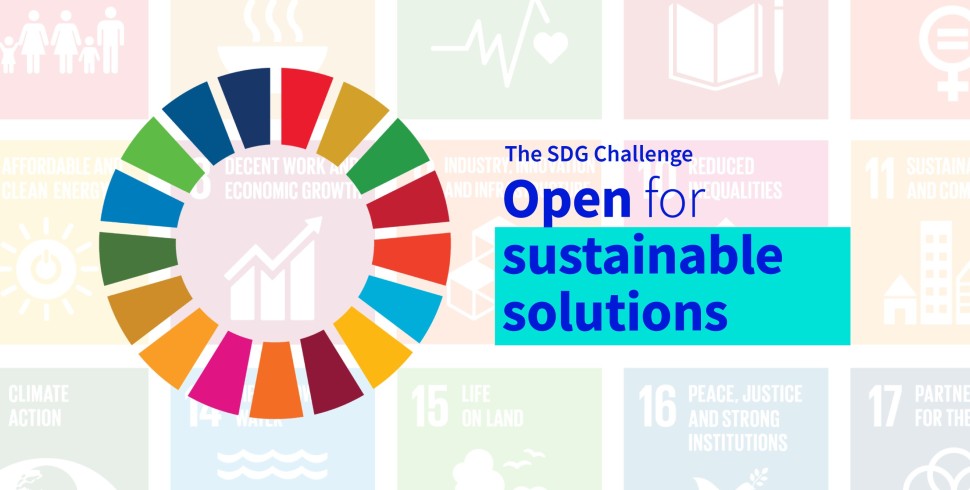
No Preview Available
Leave a comment
AREF Research Development Fellowship Programme (Africa)
Deadline: 4th October 2024
Grant size: Fellowship
Donor: AREF Research Development
The Africa Research Excellence Fund is pleased to launch the call for the 2024/25 AREF Research Development Fellowship Programme.
Programme Overview
Aim. To support researchers in Africa who are emerging leaders and working on important challenges for human health, to develop their skills as a researcher.
What we offer. A three to nine-month placement at a leading research institution in the UK, Europe or Africa, with additional support at your home institution before and after the placement. Up to £47,000 available
Who is eligible? Early career researchers. These are research active post-doctoral scientists and clinicians with higher qualifications who are nationals of and employed in Africa (see detailed eligibility criteria).
How to apply. Read the guidance documents carefully before developing your proposal and starting your application. Complete the application form via the portal at https://programmes.aref-africa.org.uk/
https://africaresearchexcellencefund.org.uk/funding-calls/open-funding-research-development-fellowship-2024-25/
By:
Tony Milanzi
Tuesday, Aug 27, 2024
CULTURE AND SOCIETY
+4
No Preview Available
Leave a comment
Hello, joining from Nairobi, Kenya
By:
Paul Katuse
Friday, Aug 16, 2024
YOUTH EMPOWERMENT
+1
Leave a comment
Research-Practice Partnership Grants Program
Grant Size: $100,000 to $500,000
Donor: Spencer Foundation
The Spencer Foundation is pleased to announce the Research-Practice Partnership Grants Program to support education research projects that engage in collaborative and participatory partnerships. They view partnerships as an important approach to knowledge generation and the improvement of education, broadly construed. Rigorous partnership work is intentionally organized to engage diverse forms of expertise and perspectives, across practitioners, scholars, and organizations, as well as disciplines and methods, in knowledge generation around pressing problems of practice and/or policy. This grant program is open to existing partnerships between researchers and a broad array of practitioners. For example, practitioners might work in school districts, county offices of education, state educational organizations, universities, community-based organizations, and other social sectors that significantly impact learners’ lives.
https://www.spencer.org/grant_types/research-practice-partnerships
By:
Tony Milanzi
Friday, Aug 16, 2024
AGRI-FOOD SYSTEMS
+4
No Preview Available
Leave a comment
CFAs: FRIAS Early Career Fellowships Programme
Grant Size: Fellowship
The Freiburg Institute for Advanced Studies (FRIAS) is inviting applications for its Early Career Fellowships Programme to support academic exchange across existing boundaries between disciplines, between different cultures and countries, between established and younger researchers.
https://www.frias.uni-freiburg.de/en/news/call-for-applications/frias-early-career-fellowship-programme
By:
Tony Milanzi
Friday, Aug 16, 2024
CULTURE AND SOCIETY
+1
No Preview Available
Leave a comment
FRIAS Sustainable Governance Senior Fellowships for Researchers
Grant Size: Fellowship
Donor: Freiburg Institute for Advanced Studies (FRIAS)
The Freiburg Institute for Advanced Studies (FRIAS) is seeking applications for the Sustainable Governance Senior Fellowships to support innovative research projects through individual and group fellowships.
The Freiburg Institute for Advanced Studies (FRIAS) is the University of Freiburg’s international research college. The Institute supports academic exchange across existing boundaries between disciplines, between different cultures and countries, between established and younger researchers.
FRIAS provides modern office spaces and an up-to-date infrastructure and makes every effort to provide tailor-made solutions with regard to suitable accommodation, child care and educational facilities.
https://www.frias.uni-freiburg.de/en/news/call-for-applications/frias-sustainable-governance-senior-fellowship-from-africa
By:
Tony Milanzi
Friday, Aug 16, 2024
CULTURE AND SOCIETY
+1
No Preview Available
Leave a comment
CFAs: Carnegie African Diaspora Fellowship Program
Grant size: less than $1000
Donor: Institute of International Education (IIE)
The Institute of International Education's Carnegie African Diaspora Fellowship Program (CADFP) is a scholar fellowship program for educational projects at African higher education institutions.
The program is funded by a grant from Carnegie Corporation of New York (CCNY). A total of 705 African Diaspora Fellowships have been awarded for scholars to travel to Africa since the program’s inception in 2013. CADFP exemplifies CCNY’s enduring commitment to higher education in Africa. IIE manages and administers the program, including applications, project requests and fellowships.
https://www.iie.org/programs/carnegie-african-diaspora-fellowship-program/
By:
Tony Milanzi
Friday, Aug 16, 2024
CULTURE AND SOCIETY
+1
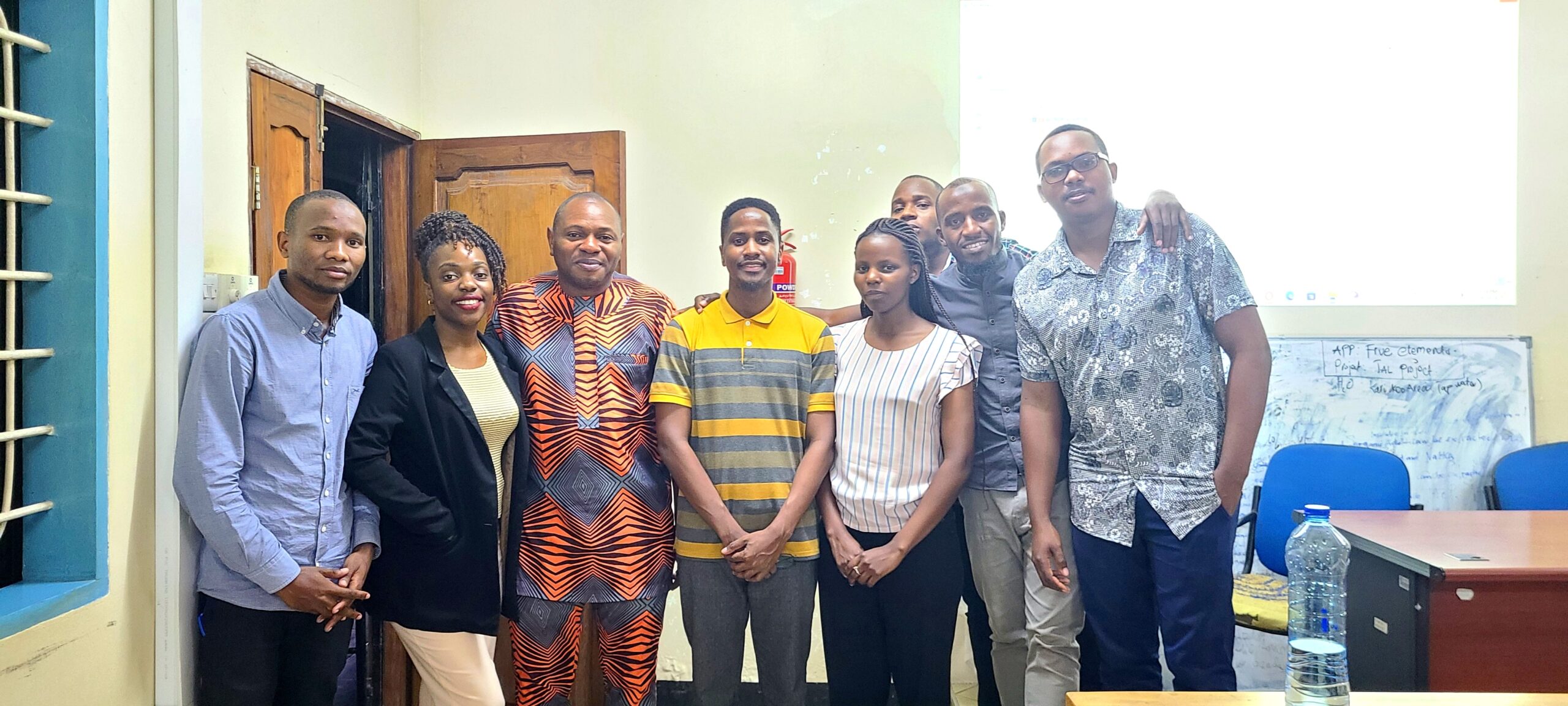
No Preview Available
Leave a comment
The Carnegie African Diaspora Fellowship Program (CADFP)
Now accepting Project Requests and Scholar Applications for theCarnegie African Diaspora Fellowship Program (CADFP)DEADLINE: September 18, 2024 at 11:59 PM ET
We are pleased to announce that the Carnegie African Diaspora Fellowship Program (CADFP) is accepting Project Requests from African host universities and Scholar Applications from qualified African academics in the diaspora in the United States and Canada.What is the CADFP?The CADFP is a scholar exchange program for African higher education institutions to host a diaspora scholar for 14-90 days for projects in curriculum co-development, collaborative research and graduate student teaching and mentoring. How do I apply?The CADFP is a two-sided application: a project request submitted by the African institution and a scholar application submitted by the diaspora scholar. Links and information about the African host institution project request, scholar application, types of fellowships, review guidelines, and FAQs are posted on the program website.Who is eligible?
Universities in Ghana, Kenya, Nigeria, South Africa, Tanzania, Uganda, member institutions of the African Research Universities Alliance (ARUA) and partner universities with the Consortium for Advanced Research Training in Africa (CARTA) can submit a project request to host a diaspora scholar. Potential host institutions can apply with a diaspora scholar in mind or request a match from IIE.
Diaspora scholars born in Africa, who live in the United States or Canada and work at an accredited college or university in either country, can apply online to be placed on a roster of candidates for a fellowship. Scholars must hold a terminal degree in their field and may hold any academic rank.
The lifetime maximum for CADFP Fellowships is two (2).
Interested parties are invited to register for one of our informational webinars:
Project Request Application Walk Through, Thursday July 18, 2024, 9:00 AM Eastern / 1:00 PM GMT / 4:00 PM EAT
Scholar Application Walk Through, Tuesday July 23, 2024, 2:00 PM Eastern
Webinars will be recorded and posted on YouTube.Watch our recent recordings discussing best practices for applying for the CADFP.
Project Request Best Practice Webinar
Diaspora Scholar Application Best Practices
TimelineThe deadline for Project Requests and Scholar Applications for diaspora scholars is September 18, 2024 at 11:59 pm ET. Selection decisions will be made late November; project visits can begin as early as January 6, 2025 and must be completed by November 30, 2025.Learn MoreVisit iie.org/AfricanDiaspora for more information about how to apply, program benefits, and details about previously funded Fellows and Projects.
By:
Jayden Hewitt
Saturday, Aug 10, 2024
EDUCATION
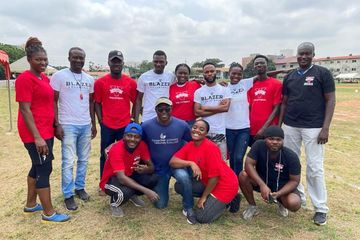
Leave a comment
Announcement of Selected Teams: 2nd Cohort of COIL Faculty Fellows Program-Africa
MSU’s Global Youth Advancement Network (GYAN), Alliance for African Partnership (AAP), and Office for Education Abroad are pleased to announce the selected teams for the second cohort of the COIL Faculty Fellows Program-Africa. Sponsored by AAP, this online fellowship program is an opportunity for teaching faculty from any discipline to explore the theory and practice of Collaborative Online International Learning (COIL) through global partnerships connecting institutions within the AAP Consortium.
Approximately 45 highly esteemed teaching faculty expressed interest in partaking in our fellowship program and the selection committee was so impressed by the quality of all team applications received that seven teams were selected, rather than six teams as initially planned. In this second cohort of our fellowship program, MSU fellows representing the Broad College of Business, College of Agriculture & Natural Resources, College of Arts & Letters, College of Education, College of Engineering, and College of Osteopathic Medicine will collaborate with African fellows from Kenya, Nigeria, and South Africa.
Join us in congratulating and welcoming the seven teams below:
Antoinette Tessmer, Broad College of Business (Finance Dept.), Michigan State University.
Jade Verbeek, Faculty of Economic and Management Sciences (Dept. of Marketing Management), University of Pretoria (South Africa).
Christina Dokter, College of Osteopathic Medicine (Dept. of Pharmacology & Toxicology), Michigan State University.
Ngozi Chioma Okoronkwo, Faculty of Agriculture (Dept. of Food Science and Technology), University of Nigeria Nsukka (Nigeria).
Daniel Uyeh, College of Agriculture and Natural Resources & College of Engineering (Dept. of Biosystems & Agricultural Engineering), Michigan State University.
Ifeoma Quinette Anugwa, Faculty of Agriculture (Dept. of Agricultural Extension), University of Nigeria Nsukka (Nigeria).
Ilce Gabriela Medina Meza, College of Agriculture and Natural Resources & College of Engineering (Dept. of Biosystems & Agricultural Engineering), Michigan State University.
Oluchukwu Margaret Mary Nwadi, Faculty of Agriculture (Dept. of Food Science and Technology), University of Nigeria Nsukka (Nigeria).
Thomas Rimer, Broad College of Business (Finance Dept.), Michigan State University.
Chukwudi Kingsley Onyeachu, Institute of Social Policy, University of Nigeria Nsukka (Nigeria).
Trixie G. Smith, College of Arts and Letters (Dept. of Writing, Rhetoric, and Cultures), Michigan State University.
Folake Ruth Aluko, Faculty of Education (Unit for Distance Education), University of Pretoria (South Africa).
Vaughn W. M. Watson, College of Education (Dept. Teacher Education), Michigan State University.
Everlyn Oluoch-Suleh, School of Humanities and Social Sciences (Dept. of Languages and Literature), United States International University-Africa (Kenya).
Our most sincere thanks to all applicants and to those who helped share this opportunity within their networks. Stay tuned to GYAN's COIL webpage for future events or new Calls for Fellows.
By:
Justin Rabineau
Tuesday, Jul 30, 2024
EDUCATION
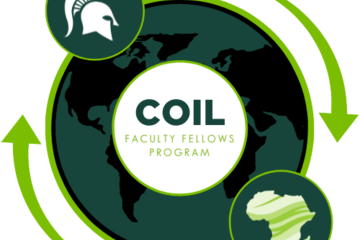
Leave a comment
African Futures Cohort 5 - Call for Scholars
The Alliance for African Partnership (AAP) is seeking applicants for the fifth cohort of the AAP African Futures Research Leadership Program. This competitive visiting scholar program supports early career researchers from the AAP consortium to work for one year under the mentorship of faculty members from MSU and their home institution, focusing on building skills in research for impact, writing scholarly and/or policy publications, disseminating of research results, and developing grant proposals for external support. Scholars will also participate in a structured professional development program while building bridges and lasting connections with MSU contacts and across their cohort.
The main objective of the African Futures program is to strengthen the capacity of a cadre of African researchers to return to their home institutions and become scientific leaders in their community, establish long-term partnerships with MSU faculty, co-create innovative solutions to Africa’s challenges, and in turn become trainers of the next generation of researchers. This program aims to address the gender gap in Africa, where only 30% of researchers are women, so scholars selected for the program will be women, or men who can demonstrate they are committed to support efforts towards gender equity in higher education institutions in Africa. The research areas that the scholars will engage in during the program should be aligned to AAP's research priority areas.
The AAP Management Team requests applications from early career researchers to participate in the next cohort, with work to begin virtually in February 2025. Scholars will spend September – December 2025 at MSU for the in-person portion of the program, followed by another period of virtual collaboration, ending in early 2026. The scholar and mentor team will receive a small grant for research and professional development activities including conference attendance and publication. Scholars will also receive a stipend during their time at MSU, visa application support, and round-trip travel from their home institution.
Potential Research Areas
Selected scholars will work in one of AAP’s seven priority areas:
Agri-food systems
Water, Energy, and Environment
Culture and Society
Youth Empowerment
Education
Health and Nutrition
Science, Technology, and Innovation
Selected scholars will be paired with an MSU mentor and commit to working with the MSU mentor and the home institution mentor for the duration of the program.
Program Benefits
Professional development activities – AAP will offer structured professional development workshops centered on topics such as building equitable partnerships, academic time management, proposal development and budgeting, research communication, etc. to establish professional trajectories, to build research, writing, and publishing skills, and to support scholars to move through various stages of review, promotion, and growth.
Leadership activities – this will center on a research leadership retreat to expose scholars to the key competencies of research leaders, the work that research leaders engage in, personal reflection on their characteristics and career goals to help determine the pathway to advancement to research leadership.
Collaboration networks – the early career researcher will be co-mentored by an MSU faculty member and a faculty member from their home institution. Mentors will have the opportunity to visit their counterpart for one week during the duration of the program. The scholar will also gain access to AAP’s broad network of researchers at MSU, across Africa, and beyond. Proposed activities should ultimately lead to potential long-term collaborations between MSU and the partner institution.
Expected Outcomes
Each scholar and mentors are expected to produce the following outputs, at minimum, by the end of the program:
Submission or evidence of publication of one to three joint manuscripts
At least one grant proposal application
At least one conference presentation
Collaborations with mentors are meant to be long-term and continue after the end of the program. Scholars are encouraged to network with MSU faculty beyond their mentor while at MSU. Scholars are expected to submit regular progress reports to AAP and their home institution focal point. Failure to meet program and mentor expectations can result in early dismissal.
Eligibility
Citizen of an African country
Completion of a PhD degree within the last 10 years
Employed as an Academic Staff member at one of the AAP African consortium universities including Egerton University, Makerere University, University of Dar es Salaam, Lilongwe University of Agriculture and Natural Resources, University of Botswana, University of Nigeria, Nsukka, University Cheikh Anta Diop, University of Arts and Humanities, Bamako, United States International University-Africa, and University of Pretoria
Have documented approval of leave or sabbatical to participate in the program for the in-person period
Have a mentor at their home institution that will serve as a collaborator and mentor
Research must be in one of the AAP priority areas
Applicants may only submit one proposal to AAP in this round of funding. Prior scholars are not eligible to apply.
Application Requirements
Applicants should provide the following documents as part of their application package:
An up-to-date curriculum vitae (CV) that provides a chronological review of their professional accomplishments
A letter of interest that demonstrates how their research interest and experience is aligned to the AAP research priority area and how they plan to implement long-term sustainable partnership (1 pages)
(for male applicants) include how they have supported efforts towards gender equity in higher education institutions in Africa
Names of potential mentors at MSU (applicants should browse relevant MSU department’s website to identify up to three faculty that are aligned with their research interests. Applicants should not contact MSU faculty directly - AAP will reach out on the applicant’s behalf)
Two publications in refereed journals related to their research area
Two professional references that detail the relationship to the applicant and provide specific examples of their assessment of the expertise of the applicant’s research area
A letter from the mentor at their home institution indicating willingness to serve as a collaborator during the program, travel to MSU for one week of collaboration discussions, and mentor the early career researcher when they return to their home institution (1 page)
A written endorsement from the applicants’ Head of Department approving leave (1 page)
A letter of support from the AAP Focal Point for the scholar’s application (1 page)
Selection Criteria:
Professional merit, scientific ability, potential career impact and future collaboration goals with MSU faculty (based on CV, letter of interest, publications, Head of dept and home mentor letters, and two reference letters)
Assurance and availability of resources from the home institution for a designated, funded position for the early career researcher upon completion of their fellowship (expressed in letter from head of Dept at the home institution)
Commitment to return to their home country following completion of training (expressed in a letter of interest)
The selection committee will ensure the best match of outstanding candidates and MSU mentors
Additional selection factors may include diversity in scientific research areas and geographic origin
Applications are due on August 18, 2024
Apply: https://msu.co1.qualtrics.com/jfe/form/SV_a60s40TOPXGO5sq
Additional program dates:
Program start date (virtual): February 2025
In-person program: Sept - Dec 2025
Program end date: February 2026
Questions
Please contact José Jackson-Malete at jacks184@msu.edu or +1 517-884-8587 with any questions.
By:
Justin Rabineau
Wednesday, Jul 10, 2024
AGRI-FOOD SYSTEMS
+6
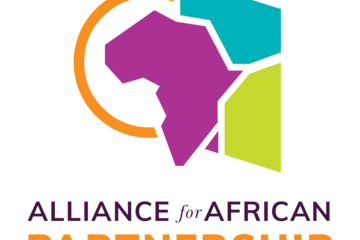
Leave a comment
Editor's Note: Richard Mkandawire, AAP Africa Director
Dear AAP Members, Stakeholders, Partners and the Public
I am pleased to present the second issue of AAP Connect, focusing on AAP’s strategic goal of research for impact. In this issue, we use the example of a critical theme that lies at the heart of sustainable agriculture and food security in Africa: soil health, fertilizer usage, and agri-food systems. Our inaugural AAP Connect issue published in April, focused on building sustainable networks in research. We wanted to highlight some of the unorthodox approaches to networking, not just the usual meet, and greet, and exchange contacts, but ones that take into account context and timing. If you missed it, please spare some time and browse through it.
We have just returned from Nairobi, Kenya, where African governments led by their heads of state, global donor organizations, and global policy network organizations met at the Africa Fertilizer and Soil Health Summit, 7th to 9th May 2024. At the summit, stakeholders unveiled Africa’s Fertilizer and Soil Health Action Plan and shed light on the pressing need to invest in this plan’s implementation, emphasizing the crucial role of soil health and fertilizer in enhancing food security and nutrition across the continent. This AAP Connect issue, therefore, comes at a critical period where Africa has gone through a challenging period of fertilizer shortages, and governments and global agencies are poised to take action. This aligns perfectly with AAP’s priority area of Agri-food systems, emphasizing one of AAP’s primary Goal 3: Research for Impact, that targets deliver impactful research that transforms lives.
I am also proud to announce to you that witnessing the summit unfolding was a surreal moment for us at AAP because we have played a pivotal role in its conceptualization. It has taken much effort and a lot of back-and-forth negotiations to make it a reality. We are proud to be the technical partner of this important process that will see transformations in Africa’s agri-food systems. The icing on the cake was that we at AAP, in partnership with ANAPRI and top experts in agriculture and soil health from across our consortium, convened a side event that focused on the role of science, research, and training institutions in the realization of Africa’s Fertilizer and Soil Health Action Plan. During this side event, we discussed at length the critical importance of knowledge creation, training, and collaborative research initiatives in driving sustainable soil health and fertilizer practices to improve food baskets in Africa.
Further cementing our commitment to actionable outcomes, AAP collaborated with Catholic Relief Services and the Government of Malawi to host the Malawi Ready event. This event convened key stakeholders to chart a strategic implementation path for Malawi's adoption of the Africa Fertilizer and Soil Health Action Plan. We were honored to welcome the President of Malawi, Dr Lazarus McCarthy Chakwera and other distinguished government officials, signifying the collective resolve to tackle soil health and fertilizer challenges head-on.
For this issue, as a way to spark your minds with innovative approaches to research for impact, we have enlisted top experts to unpack key issues and bring ideas that may be transformed into solutions for Africa. We hope that you will enjoy and be inspired to work on your next impactful research project in agri-food systems or any other field which has the potential to transform lives in Africa and beyond. Together, we can drive meaningful change and pave the way for a more sustainable and food-secure Africa.
Warm regards,
Richard Mkandawire
AAP Africa Office Director
By:
Baboki Gaolaolwe-Major
Wednesday, Jul 10, 2024
WATER, ENERGY, AND THE ENVIRONMENT
+2
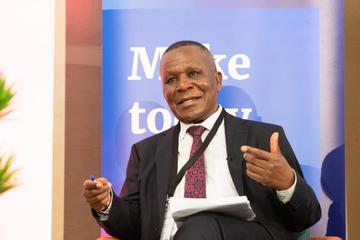

Leave a comment